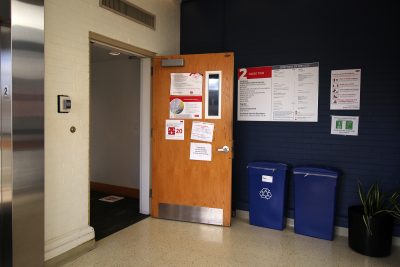Boston University’s work-study program has continued throughout the pandemic, but not without adjustments.

Students can work remotely or on a hybrid model that allows them to come in person based on department needs and their personal comfort, said April Hoyt, the manager of student employment at BU.
“I would say the pandemic has had a few different effects on student employment,” Hoyt said. “There were definitely some students that had to find new positions.”
Hoyt said some students were able to switch to remote work, while others were able to start working in new jobs necessitated by the pandemic.
Hoyt said some students’ need for a job has increased due to the pandemic because of COVID-related economic constraints.
“Some students, their need for employment has really intensified,” Hoyt said. “Sometimes they’re communicating that this is because they no longer have financial support from maybe a parent or guardian who lost their job because of the pandemic.”
For students who are working in person, Hoyt said SEO has been following University COVID-19 protocols and guidelines.
“Anything that the University establishes as best practice for keeping people safe,” she said, “whether they’re working or learning, is what we would recommend for student employees and supervisors of student employees to follow as well.”
Hoyt said even if a student is learning fully remotely in the United States, they can still use their work-study award to find a job that works with their class schedule.
Mira Elzanaty, a junior in the College of Communication, said she is currently working on a research project and would do work-study if she was offered it again next year.
“I need to get paid, and my experience hasn’t been so bad that I don’t want to do it anymore,” she said.
Allyson Imbacuan, a sophomore in the College of Arts and Sciences, has been an English as a Second Language tutor with the Intergenerational Literacy Program since September.
Imbacuan said she appreciated the increased flexibility of her remote work-study job.
“My entire work study experience has been completely through Zoom,” she said, “which I actually … liked.”
Imbacuan said the flexibility of the online experience was nice, though she wasn’t able to get to know the learners as well as she’d like to.
She said the pandemic may have impacted the number of students who decided to do work study.
“I feel like after so many months of being at home … we kind of had this feeling of helplessness,” Imbacuan said. “We all wanted to just get our hands doing something or just feel like we’re contributing to society in some way again.”
Imbacuan said she enjoys offering English education to new immigrants because her mother — who immigrated from Colombia — was in a similar program that she benefited from.
“I just marvel at the fact that I’m able to do this now,” she said. “I never thought I would get to the point where I would literally be doing the work that people helped my mom with.”
However, she said she hopes to have more in-person interaction in the future.
“I’m really hoping that one day, I can actually be in the classroom and be teaching them in person and get to know them a lot better,” Imbacuan said.
Hoyt added that SEO is a resource for students — the office can be contacted by phone or email, and job updates are posted on the Student Link.
“If people are looking for work, we are here to help,” she said. “We’re still making every effort we can to help connect students with employment.”
















































































































